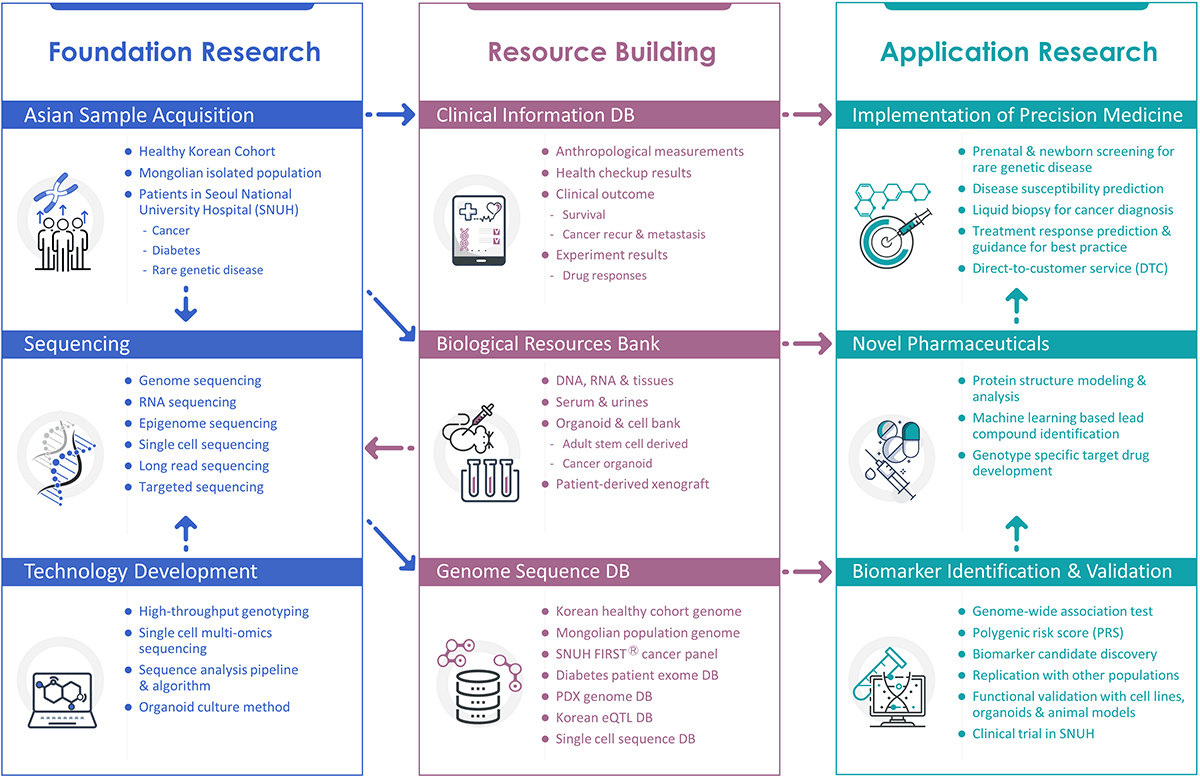Asian Genome Research and Implementation of Precision Medicine
Establishment of cutting-edge technology
Develop the newest genome sequencing technologies such as single cell sequencing, and establish efficient analysis algorithms. Gene editing using the CRISPR/Cas system and functional validation systems such as organoids and PDX will also be incorporated.Accumulation of Asian samples and genome data
Samples from healthy donors and patients with various diseases are obtained through pre-established cohorts and Seoul National University Hospital. Genome data will be acquired through various sequencing methods. A detailed list of Asian-specific genome variants, linkage disequilibrium map and cell- or tissue-specific gene expression database will be established.Investigation of disease-association and function of genome variations
Based on the Asian-specific allele frequency data, genome variations that cause rare genetic diseases and cancer driver somatic mutations will be discovered. Genome variations associated with common complex diseases such as neurological, immune, and chronic metabolic diseases will be also identified. Using patient-derived organoids and xenografts, we will investigate the in vivo function and mechanism of action of disease-associated genome variations.Clinical application
Develop a database of disease-associated genome variations and an efficient reporting system that can be used clinically. We will also develop knowledge databases that includes clinicians’ experience and new results from clinical trials and apply them to clinical practice. We will develop new drugs targeting disease-associated genome variations and propose optimized treatments for patients based on genome information related to drug responsiveness.

